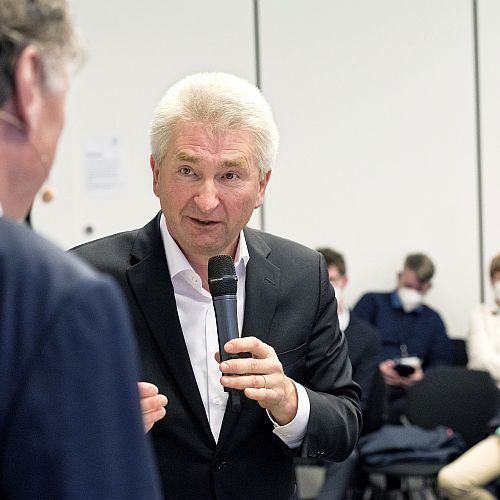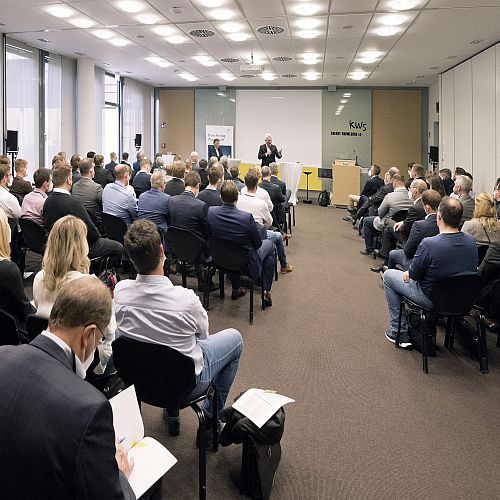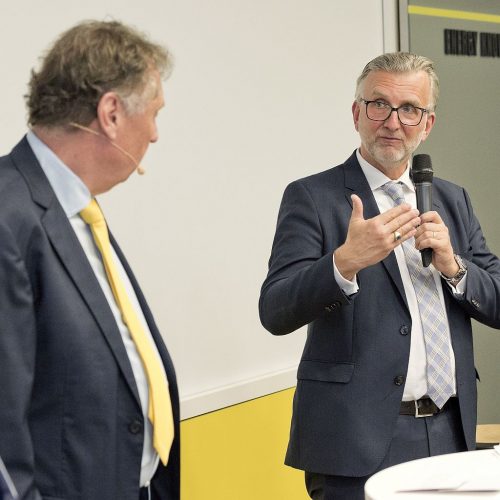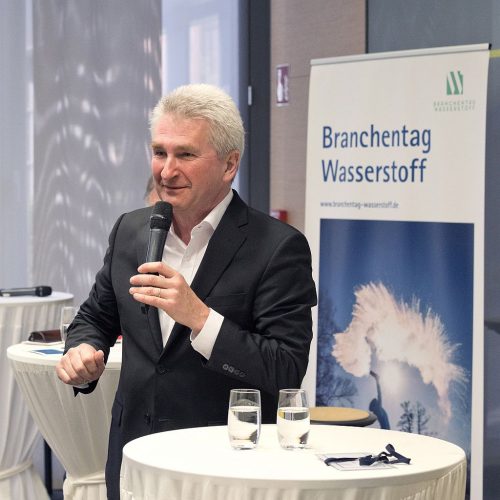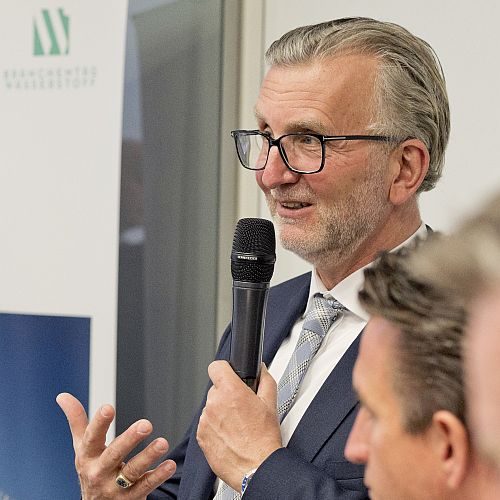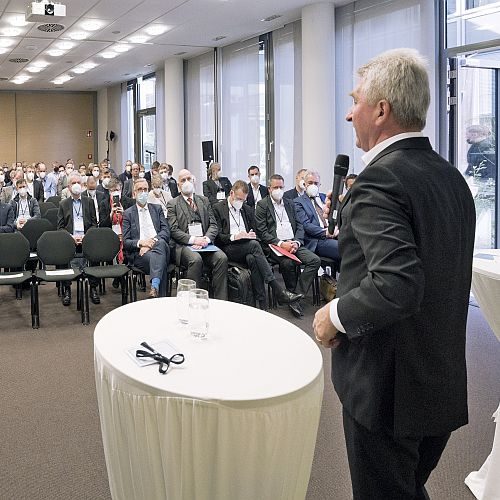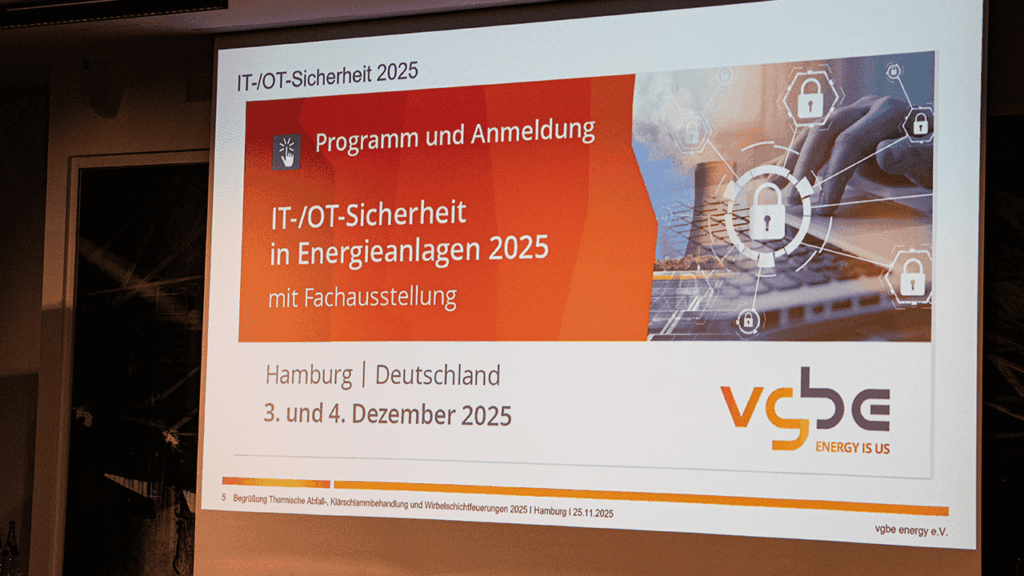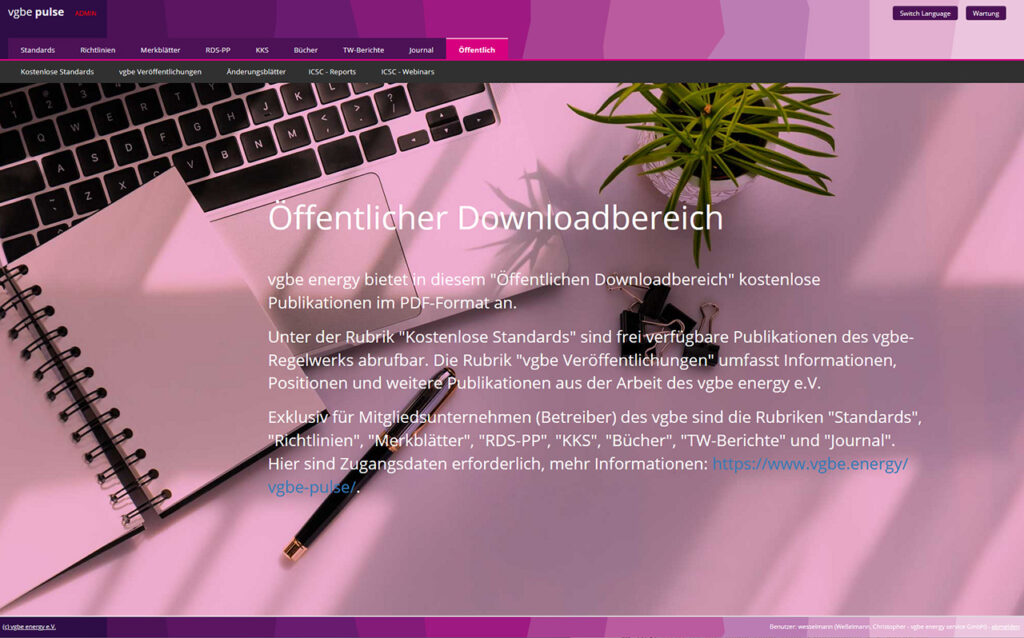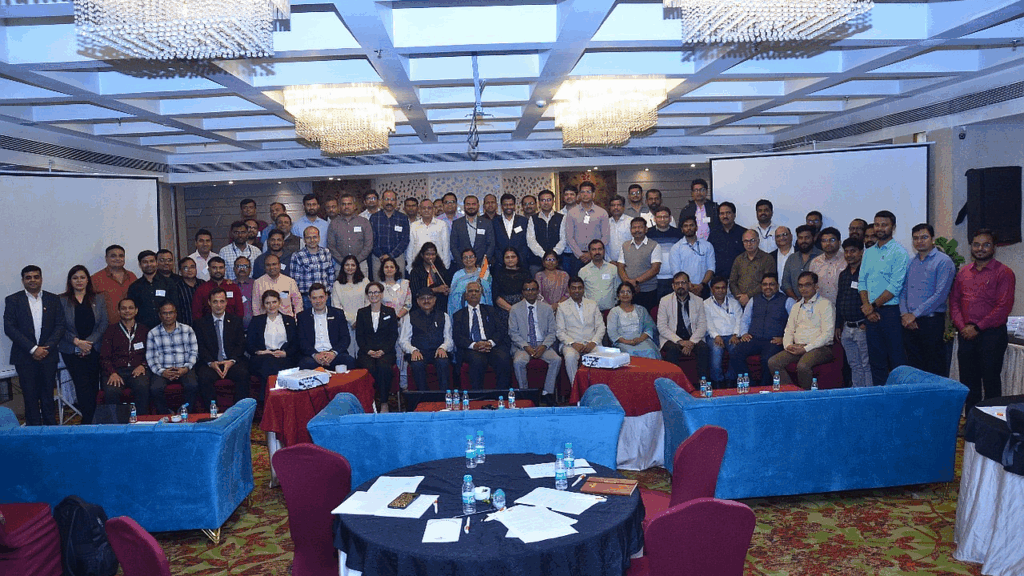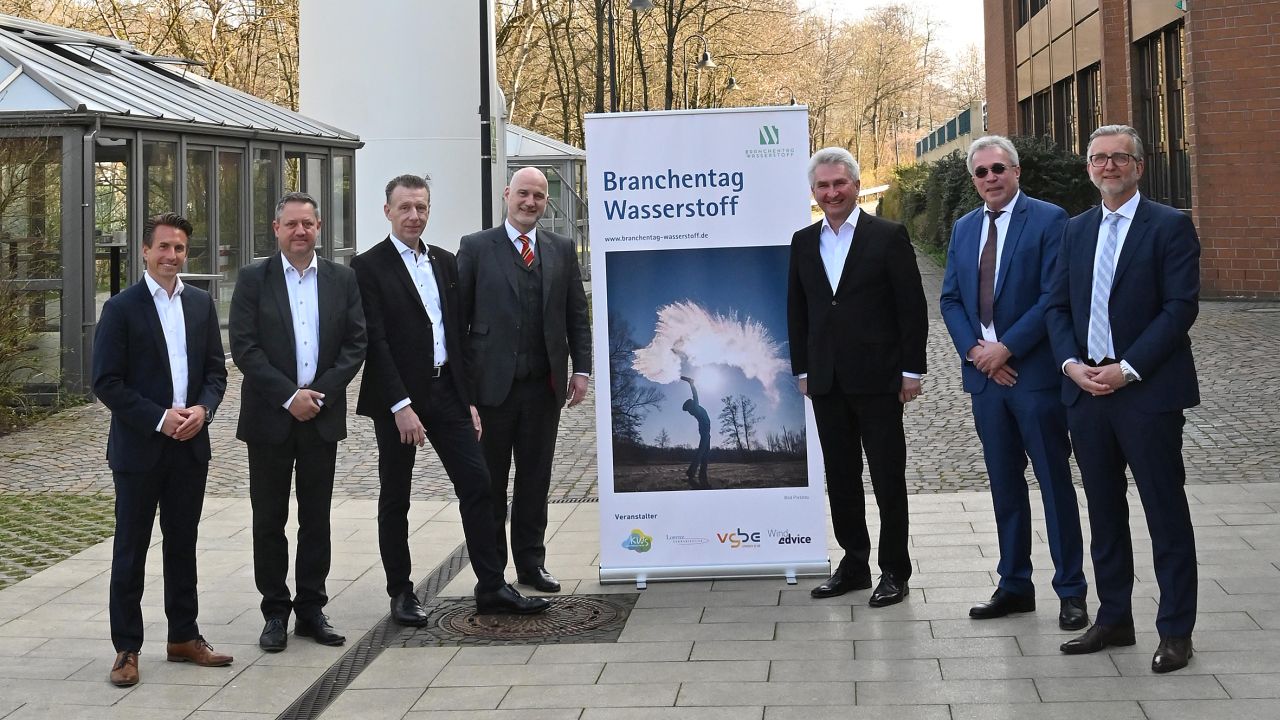
In addition to a very appealing two-part workshop and lecture programme, in which large-scale and SME projects were presented and discussed under technical, economic and regulatory aspects, the organisers were able to win Prof. Dr. Andreas Pinkwart, Minister for Economic Affairs, Innovation, Digitalisation and Energy of the Federal State of North Rhine-Westphalia, as patron of the first Hydrogen Industry Day.
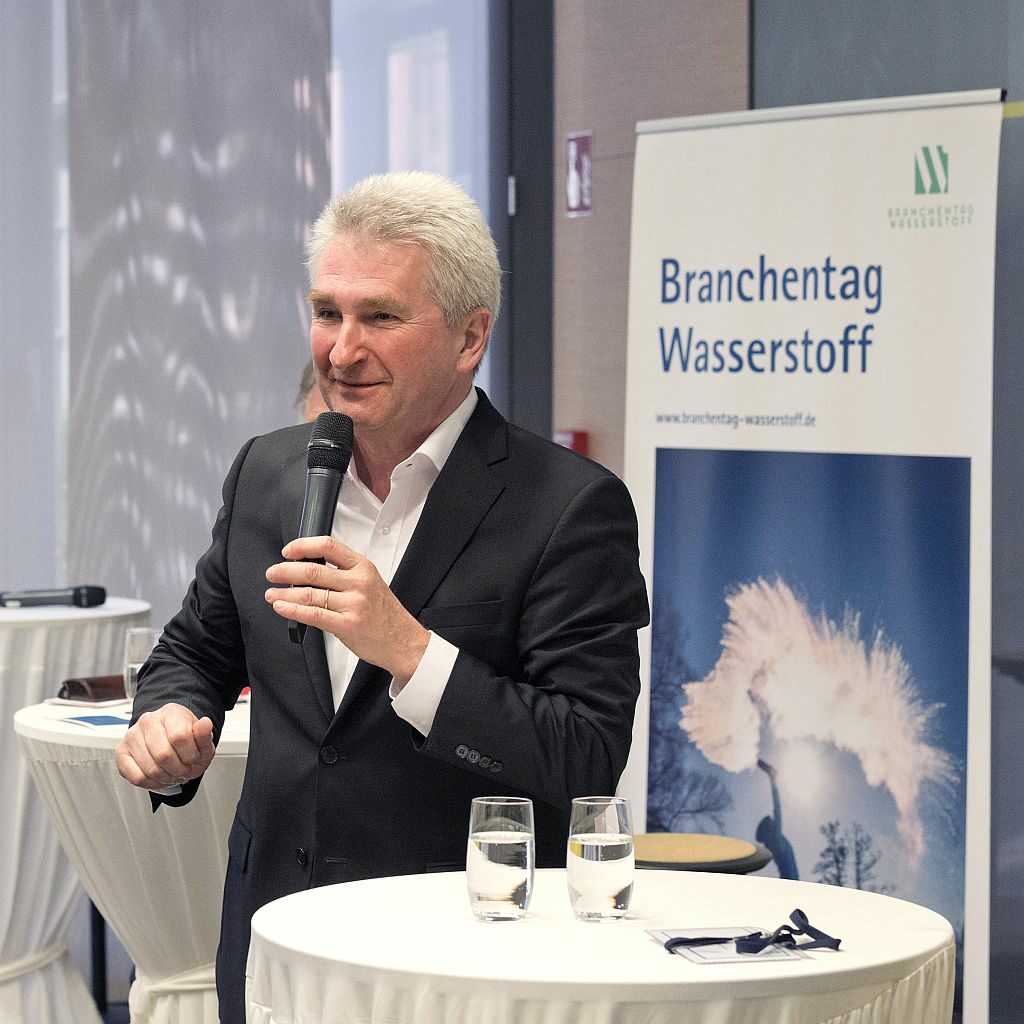
© Anette Hammer / Freistil Fotografie
This is not only about large-scale projects in the context of sector coupling, such as a large-scale direct reduction plant for the production of steel, but also about decentralised projects to produce as much hydrogen as possible in a cost-effective and competitive manner and to use it efficiently and intelligently in the areas of mobility, energy, heat supply and infrastructure. Using the example of electromobility, the Minister explained how quickly technical developments and the necessary economic viability of innovative projects are progressing. The state government sees a similar development as with e-mobility in the topic of hydrogen, or the development of electrolysers with higher outputs and corresponding economies of scale. The ideas and visions of the state government for the market ramp-up of hydrogen and climate neutrality are summarised in the Hydrogen Roadmap NRW 2020.
Following the Minister’s opening speech, the opening event continued with a panel discussion by representatives of various associations: Werner Diwald, DWV, Holger Gassner, bdew, Dr Dietmar Kestner, VAIS, Christian Mildenberger, LEE NRW, Christian Seyfert, VIK and Dr Oliver Then, vgbe energy, discussed current issues surrounding the topic of this industry day. The participants in the discussion confirmed that the industry and the members of their associations, on the manufacturer as well as on the operator side, were ready to drive the transformation towards the hydrogen economy and that technical know-how was available in the companies and projects were in the planning stage. With a corresponding expansion of renewable energies, German industry would be in a position to produce large quantities of green hydrogen itself and thus make a significant contribution to the security of supply of the industrial location. Missing quantities could be covered by imports.
The participants in the discussion were of the opinion that the expansion of the hydrogen economy must be accelerated jointly at European level, but that there was currently a lack of clearly defined political framework conditions. This applies at European as well as national level. Without clearly defined support mechanisms, the necessary investments were difficult or even impossible to implement. Unclear framework conditions lead to uncertainties regarding remuneration, the “hydrogen colour spectrum” and sales opportunities.
In addition, it was emphasised that in future, too, there must continue to be massive promotion of social acceptance for the expansion of renewables in order to be able to produce primarily green hydrogen in accordance with the political and social consensus.
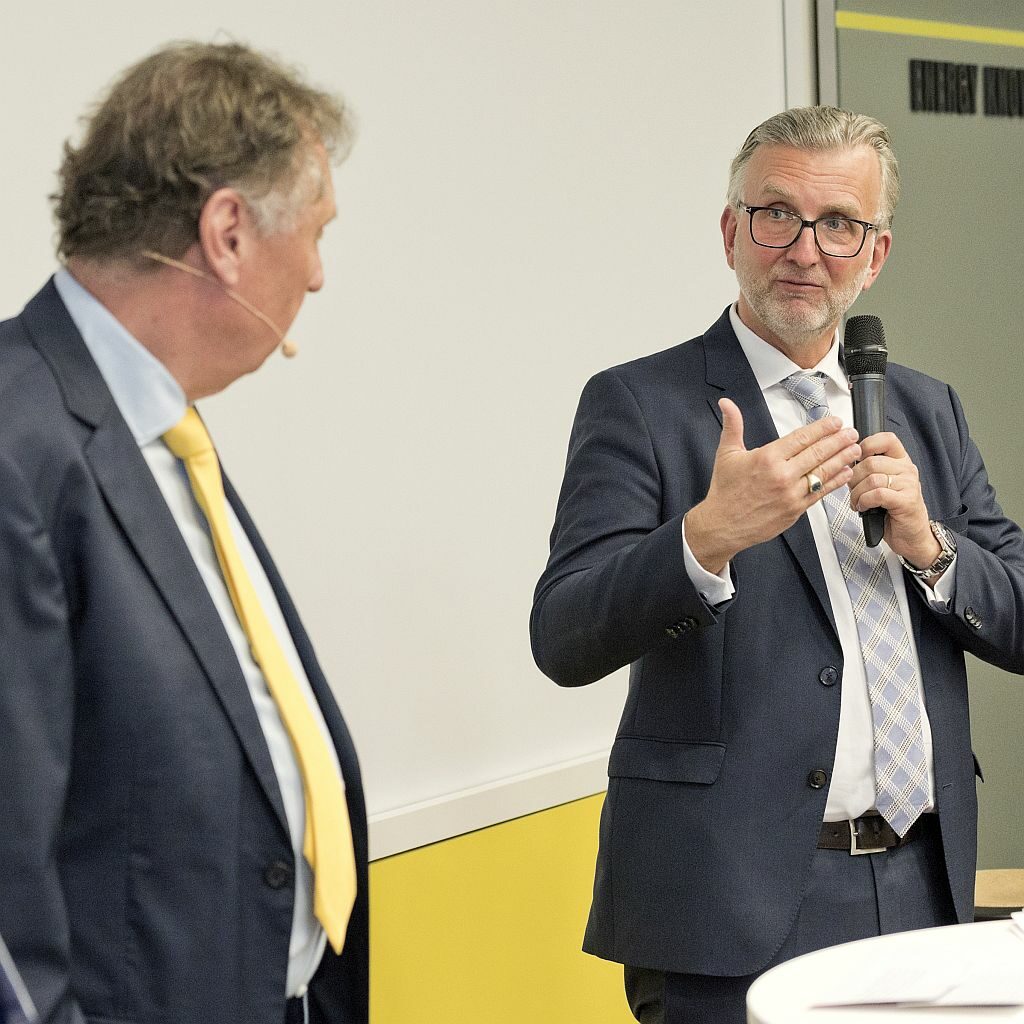
Panel discussion
© Anette Hammer/Freistil Fotografie
Only by informing all social groups and through broad understanding, the ambitious goals can be achieved in the required time frame, which has become even more urgent due to current political developments.
In addition, the representatives of the associations saw a need for education and training. Qualified personnel for the operation of innovative plants are indispensable along the entire value chain and also an essential factor for the transformation towards a successful hydrogen economy.
The subsequent programme of lectures and workshops was primarily market and project oriented and dealt with topics ranging from lead projects of the German Federal Ministry of Education and Research (BMBF) to application examples at local level, transport of hydrogen and modular electrolysers, supplemented by political and legal framework conditions. For example, the contribution on the Wuppertal hydrogen model pointed out the difficulties that can arise with regard to unclearly defined framework and funding conditions for production and use: When is hydrogen (still) green? With which energy underlying hydrogen production can which hydrogen be produced and how can it be used or marketed? These and other questions were presented in the lectures and lively discussed by the participants. It became clear that research and development work is necessary in many areas so that political decision-makers can also be shown fields of action. It is necessary to define exactly what is meant by “H2 readiness”, for example, and how hydrogen can be used sensibly in industry, mobility and private households. For example, the “Prosum H2” project planned by vgbe energy could help to demonstrate production and utilisation possibilities of hydrogen at pit gas engine sites in the Ruhr area using existing infrastructure and thus make a significant contribution to structural change.
The first day of the event was rounded off by a “hydrogen regulars’ table” against the historical backdrop of the old Kupferdreh railway station. Here the participants had ample opportunity to continue the day’s technical discussions and, above all, to expand their networks through “business speed dating”.
The first Hydrogen Industry Day was rated as very successful by participants, speakers and organisers alike. A second Hydrogen Industry Day followed by a “hydrogen regulars’ table” is planned for 28/29 March 2023.
